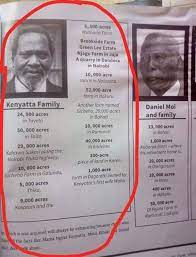If you are an Omuyemba, Omukhwami, Omuyiitu, Omutukwiika, Omubuya Omukabo, Omuchemayi, Omusang’alo or Omubachangi, then you, historically, are entitled with keeping the customs and traditions of the Bukusu Community. From this lineage, there’ve arisen powerful culture custodians, public comforters and public speakers that have readily defended the ways and customs and carefully passing them down to generations.
And yet, it is suicidal to hear some clan members and Bukusu in general, mutilate the language that means so dear to the community. Today, the author, Omuyitu by Clan rises to condemn the use of ‘V’ in modern Lubukusu pronunciation. It is foreign, uncelebrated, and unwelcome. It misleads the principles of pronunciation of the Lubukusu language.
For instance;
‘Baalamu’ (We are fine) is an acceptable version but not ‘Vaalamu’. Likewise, ‘Boosi’ (all of them) is acceptable and not Voosi. Same applies to ‘Buulo’ (wheat) and not ‘Vuulo’, and so on...
How sad that some modern Bukusu speakers have resorted to illegally and inappropriately lifted erroneous language connotations from other Mulembe sub-nations such as Banyala, Bamaraki, Bakhayo, Babesukha, and Bakabalasi among others. For instance, nouns such as Vuyaya, Vumekele, Vayoti, Vasituyi, Chivalayo, Vuyiindi, Vakoki, Livuva, Vakoko, Vikele, Vachonwaki, and Virere are a massaged versions and do not fit in Lubukusu language mechanics, unless replaced by ‘b’ in place of ‘v’.
Observably, words and pronunciations relate but it does not grant permission to lift them. For instance, in Sotho of South Africa, ‘musali’ means woman. In Bukusu, similar Bantu sub-nation, the word for woman is ‘omukhasi’ while ‘omusali’ refers to a diviner. The Swazi call fire ‘umulilo’, Sotho, ‘mollo’ while in Lubukusu it is ‘kumulilo’. Even Sotho’s word for cattle is ‘likhomo’ but for Bukusu is ‘chikhafu’, and not bibyayo (livestock). Interestingly, Bukusu history associates Sotho’s Mountain of Thabia Bosiu (Montain of Night) to Mount Tabasya in Bukusu, explaining close semantic relationship.
Importantly, let’s revisit the basics: There are 4 language dialects in the Baluhyia nation: Lubukusu, Luwanga, Lulogooli and Lunyala.
The affricative pronunciation ‘tsia’ or ‘tsiase’ do not operate in Lubukusu (although seen in Bamasaaba of Uganda). So, it is okay to say:
Chikhafu chase (or change) [my cows] but not chikhafu tsiase (non-Lubukusu connotation)
Even so, only Bukusu sub-nation uses 'ekhafu' for cow. In Luwanga it is 'ing’ombe' and 'eng’ombe' in Lulogooli. In a similar pattern Likhese (sheep) is Likondi in both Luwanga and Lulogooli: and Kumurongoro (Bukusu for Tree) but Omusala for the other two dialects.
Looking at ethnolinguistic grouping, we find that Lulogooli is spoken by Barakoli; Lunyala by Banyala and Basamia; Luwanga by Bachocho, Bawanga, Banyore, Batiriki, Babesukha, Bakisa, Babetakho, Bamaraki, Bakhayo, Bakabalasi and Bamarama. Nevertheless, Lubukusu is spoken by Babukusu.
In the light of that, it is heart-warming to read about Lubukusu on texts, chatrooms and online groups. It is, however, saddening to witness wrong phonological writing and pronunciations. To emphasize the point, the ‘V’ dialect is not part of the language. In the context of modern day communication, ‘v’ is an idiolect and it should not be permitted to evolve into an official dialect.
Both ‘Vuu’ or ‘Vu’ and ‘Buu’ or ‘Bu’ depict share a full prefix but ‘Vuu’ or ‘Vu’ is pronounced when sound is trapped by upper teeth on the lower lip with the former a bit elongated than the later . Then, ‘Buu’ or Bu’ is when the sound is blocked by both upper and lower lips without teeth, as if one is making a blowing sound. These differences in semantics matter a lot. If you intend to speak fluent Bukusu then reject ‘Vuu’ or ‘Vu’ in place of ‘Buu’ or ‘Bu’.
Check this out:
Kukhu Nabibia abola ali khunywe Butokha befwe (correct)
Kukhu Navivia avola ali khenywe vutokha vefwe (absolutely wrong)
[Translated as; Grandmother (Nabibia) says we take our share cow’s young milk]
Just as the Babukusu of Mount Masaaba use ‘yikhala’ (for sit) and ‘khulia’ (for dine/eat), a different nuance with ‘ikara’ and ‘kuria’ is seen among the Bakikuyu of Mount Kenya. The Bakikuyu replaces Lubukusu glottal fricatives with voiceless velar plosives ‘khala’ with ‘kara’ as well as postalveolar continuant ‘r’ for frictionless continuant ‘I’.
Then if you love your language, speak as it is. Do not follow the trend set by clueless ‘digitized’ pseudo-speakers who allege affiliation to Bukusu. It is an offense and insult to our forerunners. In Lubukusu, grammar-conscious speakers need to vacate from ‘v’ and embrace ‘b’, Sekali kario? (Isn’t so?)










Comments